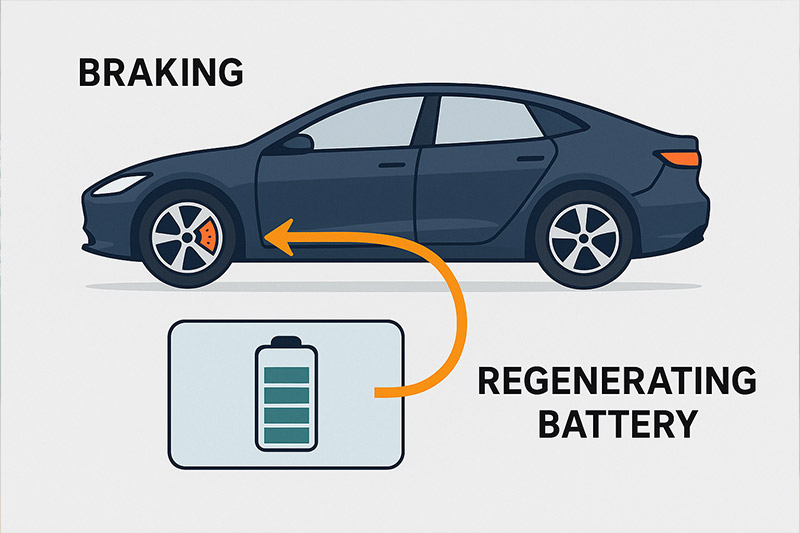As electric vehicles EVs become more common on the road, many drivers are asking how their maintenance compares to traditional gasoline-powered cars, especially when it comes to the brakes. At first glance, you might assume EVs wear out brake pads faster due to their heavier weight. But the reality is more surprising.
EVs Are Heavier but Use Brakes Less
Electric vehicles are usually heavier than gas-powered cars because of their large battery packs. Extra weight typically means more wear and tear on brake components. However, EVs have one major advantage: regenerative braking.
Regenerative braking is a system that slows down the vehicle by reversing the electric motor to recover energy. This process reduces the need to use the conventional brake pads, sometimes significantly.
Brake Wear in Gas Cars vs EVs
- Gas-powered cars rely entirely on friction brakes pads and rotors, so they wear down faster, especially in city driving with lots of stop and go
- EVs use regenerative braking in most driving conditions, which means the physical brake pads are used less frequently
In fact, many EV owners report brake pads lasting over 100000 miles with minimal wear. In contrast, brake pads on gas cars typically need replacement around 30000 to 70000 miles depending on driving style.
Driving Style Still Matters
Even in an EV, how you drive affects brake longevity. Aggressive braking, high-speed driving, or towing heavy loads can cause brakes to wear faster. However, in day-to-day commuting and urban driving, EVs are usually gentler on their brake systems.
Some EVs even offer one pedal driving, where lifting off the accelerator slows the car quickly without using the brake pedal. This feature further reduces the use of traditional brakes.
One Thing to Watch Brake System Corrosion
Because EV brakes are used less often, they can be more prone to rust or corrosion, especially in humid or salty climates. That is why it is still important to get periodic brake inspections, even if wear is low.
In some cases, lack of regular brake use can cause calipers to seize or pads to stick, which can lead to costly repairs if ignored.
Conclusion EVs Are Easier on Brakes
Despite their heavier weight, EVs usually wear out brakes more slowly than regular cars thanks to regenerative braking. Most drivers will spend less on brake repairs and replacements, though they should stay mindful of corrosion risks and get their braking systems checked during routine service.
So if you are switching to an EV, rest assured your brakes will likely last longer, cost less to maintain, and give you one less thing to worry about.

Leave a Reply